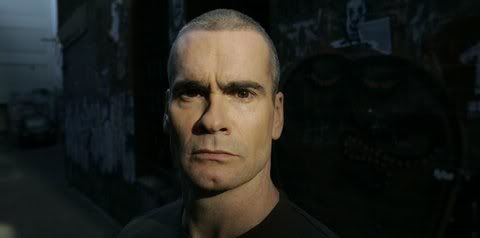![]()
RIYL: early Pink Floyd, Robyn Hitchcock, The Flaming Lips

Fans of Pink Floyd’s original frontman, the late Syd Barrett, will no doubt look at this latest collection of some of the man’s greatest musical moments and wonder why on earth they should be expected to fork out several more dollars for songs that they already possess in their collections. Indeed, a cursory glance at the track listing would lead one to believe that the only possible merits to purchasing An Introduction to Syd Barrett are these: it’s the first time that there’s been a Barrett collection which also included highlights of his work with the Floyd, and there are a handful of tracks…five, if we’re to be precise: “Matilda Mother,” “Here I Go,” “Octopus,” “She Took A Long Cool Look” (note the title change, as the look in question used to be cold), and “Dominoes”…which bear parenthetical assurances that they have been either freshly mixed or newly remixed in the year of our lord 2010. Is this really enough to make An Introduction worth your while, let alone your money? Before you make that decision, it’s worth considering that the purchase of the CD, whether in digital or physical form, also grants you the opportunity to download “Rhamadan,” a heretofore-unreleased instrumental from the Barrett vaults.
That’s got you, hasn’t it? And don’t think EMI doesn’t know it.
It might also up the credibility of this collection to know that the mixing and remixing has been done at the hand of one D. Gilmour, with assistance from Damon Iddins and Andy Jackson. Gilmour also added a bit of bass of “Here I Go,” despite the fact that the song had successfully remained bass-free for 41 years, but given that he and Roger Waters probably had as much (if not more) to do with The Madcap Laughs getting finished as Barrett himself, it’s hard to begrudge him the opportunity to fix something that he’s apparently always heard as broken.
While it’s not hard to accept that the world might be a better place with a collection that covers both Barrett’s work as a solo artist and as a member of Pink Floyd, the choice of material to represent the latter could’ve done with a bit more expansion. Presumably, EMI didn’t want to lose possible future purchases of A Saucerful of Secrets by including the only Barrett composition from that record, but given that “Jugband Blues” stands as his final song to be placed on a Pink Floyd album, its absence can’t help but be felt. And when in Syd’s name is someone at that label going to wise up and offer official release to “Vegetable Man” and “Scream Thy Last Scream”? Surely this was the time and place to finally make it happen, but, no, they dropped the ball, much as they’ve continued to drop it for…wow, has it really been 43 years since those songs were recorded and locked in the vault? How time flies.
If you’ve yet to be introduced to the strange and psychedelic world of Syd Barrett, this is certainly a way to go, but if we can pretend for a moment than An Introduction to Syd Barrett is about bringing new fans into the Barrett camp (as opposed to getting existing fans to spend more money on old material), it’s not likely to do any better or worse than any of the existing albums. Underlining Barrett’s place in Pink Floyd’s legacy is a noble gesture on Gilmour’s part, but Syd’s still going to be the same acquired taste that he’s always been. (EMI 2010)


 When the Scorpions announced that their new album, Sting in the Tail, would be their last, some cursed, others cried, but most asked, “Wow, really, the Scorpions are still together?” At this, the other two demographics immediately responded, “Well, they won’t be soon, but thanks for pouring a little more salt in the wound, you cruel bastards,” but at least the band has offered up quite a bit of music in their 45-year career – yes, seriously: the original incarnation of the band came together in 1965 – to keep their fans rocking well into the future. The Scorpions’ previous album, 2007’s Humanity: Hour I, found them teaming up with producers James Michael and Desmond Child for a concept album that was better than you might think (and, believe it or not, even featured a guest appearance from Billy Corgan on one track), but for their grand finale, the group has opted to go back to basics and re-embrace the straight-ahead heavy metal sound that earned them their greatest success.
When the Scorpions announced that their new album, Sting in the Tail, would be their last, some cursed, others cried, but most asked, “Wow, really, the Scorpions are still together?” At this, the other two demographics immediately responded, “Well, they won’t be soon, but thanks for pouring a little more salt in the wound, you cruel bastards,” but at least the band has offered up quite a bit of music in their 45-year career – yes, seriously: the original incarnation of the band came together in 1965 – to keep their fans rocking well into the future. The Scorpions’ previous album, 2007’s Humanity: Hour I, found them teaming up with producers James Michael and Desmond Child for a concept album that was better than you might think (and, believe it or not, even featured a guest appearance from Billy Corgan on one track), but for their grand finale, the group has opted to go back to basics and re-embrace the straight-ahead heavy metal sound that earned them their greatest success.


 “There ain’t no grave that can hold my body down.” So sings the Man in Black on the opening track of what we are assured is truly the final entry in his series of his Rick Rubin-helmed American Recordings albums. It’s been six years since his death, yet if there’s anyone you could believe would make good on such a lyric, it’s Johnny Cash. In that brief interim between losing his beloved wife, June Carter Cash, and losing his own battle against the health issues which had plagued him for several years, Cash entered the studio and cut the material on both this album and its predecessor (American V: A Hundred Highways), but while the sessions may have given him the opportunity to provide his own musical epitaph, listening to material like “I Don’t Hurt Anymore” and “Can’t Help But Wonder Where I’m Bound” serves first and foremost to reopen the old wound left by Cash’s demise. Only after getting past the sense of loss can one truly begin to appreciate American VI…and trust me when I tell you that it’s liable to take you a few spins to reach that point.
“There ain’t no grave that can hold my body down.” So sings the Man in Black on the opening track of what we are assured is truly the final entry in his series of his Rick Rubin-helmed American Recordings albums. It’s been six years since his death, yet if there’s anyone you could believe would make good on such a lyric, it’s Johnny Cash. In that brief interim between losing his beloved wife, June Carter Cash, and losing his own battle against the health issues which had plagued him for several years, Cash entered the studio and cut the material on both this album and its predecessor (American V: A Hundred Highways), but while the sessions may have given him the opportunity to provide his own musical epitaph, listening to material like “I Don’t Hurt Anymore” and “Can’t Help But Wonder Where I’m Bound” serves first and foremost to reopen the old wound left by Cash’s demise. Only after getting past the sense of loss can one truly begin to appreciate American VI…and trust me when I tell you that it’s liable to take you a few spins to reach that point.





